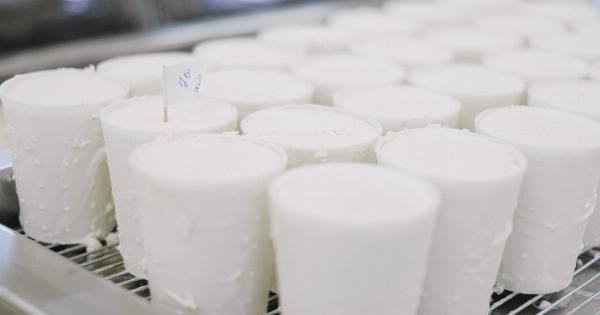As a new parent, you want what’s best for your baby’s health and well-being. Breastfeeding is often recommended as the optimal way to nourish infants, providing them with essential nutrients and antibodies to support their immune system.
However, allergies in infants can pose a challenge and require careful management. In this comprehensive guide, we will explore how breastfeeding can help prevent allergies in infants and provide strategies for managing allergies if they do occur.
The Benefits of Breastfeeding for Allergy Prevention
Breast milk is uniquely designed to protect infants against allergies. It contains antibodies, enzymes, and immune factors that can help infants develop a tolerance to potential allergens. Here’s how breastfeeding can help prevent allergies:.
1. Transfer of Immune Factors
When a mother breastfeeds her baby, she passes on immune factors such as human milk oligosaccharides (HMOs) and secretory immunoglobulin A (IgA).
These components help support the development of a healthy gut microbiome, which plays a crucial role in preventing allergies.
2. Allergen Exposure
While it may seem counterintuitive, exposing babies to potential allergens early on through breast milk can actually help reduce the risk of allergies.
By gradually introducing allergens, the baby’s immune system has a chance to develop tolerance, minimizing the chances of an allergic reaction later in life.
Managing Allergies in Breastfed Infants
Despite the potential benefits of breastfeeding, some infants may still develop allergies. Here are some strategies to manage allergies in breastfed infants:.
1. Identify the Allergen
If your baby shows signs of an allergic reaction, it’s important to identify the allergen responsible. Common allergens include cow’s milk, eggs, peanuts, soy, wheat, and fish.
Keep a food diary to track your baby’s diet and any symptoms that may arise.
2. Elimination Diet
If you suspect a specific food is causing an allergic reaction, you may need to eliminate it from your diet while breastfeeding.
This involves avoiding foods that contain the allergen, carefully reading labels, and seeking guidance from a healthcare professional or registered dietitian.
3. Probiotics and Prebiotics
Probiotics and prebiotics can help support a healthy gut microbiome and may alleviate allergy symptoms. Some studies suggest that certain strains of probiotics, when taken by breastfeeding mothers, can reduce the risk of allergies in their infants.
4. Consult a Healthcare Professional
If your baby’s allergies persist or worsen, it’s crucial to consult a healthcare professional. They can help determine the best course of action, provide guidance on managing allergies, and offer appropriate treatment options if necessary.
When to Introduce Solid Foods
The introduction of solid foods is an important milestone for infants, especially when it comes to managing allergies. Here are some guidelines to follow:.
1. Exclusive Breastfeeding for Six Months
The World Health Organization recommends exclusive breastfeeding for the first six months of a baby’s life. This means providing breast milk as the sole source of nutrition, avoiding any additional solid foods or liquids.
2. Gradual Introduction of Allergenic Foods
Between six and twelve months, gradually introduce allergenic foods while continuing to breastfeed. Start with small, well-cooked portions to minimize the risk of allergic reactions.
Observe your baby for any signs of allergies and consult a healthcare professional if needed.
3. Avoidance is not the Solution
Avoiding allergenic foods altogether may seem like a solution, but it can actually increase the risk of allergies. Introducing potential allergens and monitoring your baby’s response under medical supervision is a better approach.
Conclusion
Breastfeeding provides numerous benefits for infants, including potential protection against allergies.
By understanding the role of breastfeeding in preventing allergies and implementing appropriate management strategies, you can effectively support your baby’s health. Remember to consult healthcare professionals for personalized advice and guidance throughout your breastfeeding journey.



























